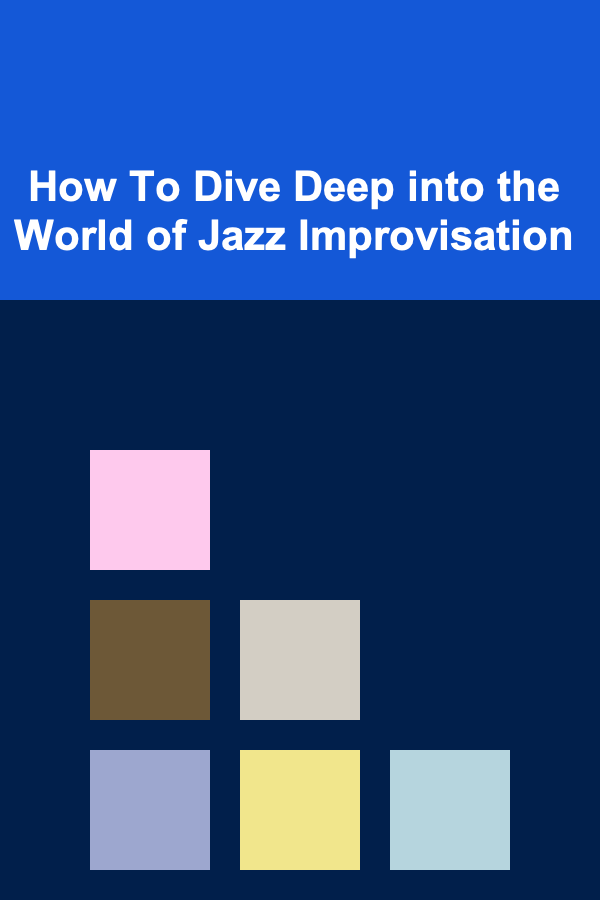
How To Find Books That Are Genuinely Disturbing
ebook include PDF & Audio bundle (Micro Guide)
$12.99$8.99
Limited Time Offer! Order within the next:

The pursuit of genuinely disturbing literature is a unique journey, often misunderstood, and deeply personal. It's not merely about seeking out gore or shock value, though these elements can certainly be present. Instead, it's about confronting the uncomfortable, exploring the darker facets of the human psyche, and grappling with ideas that challenge our perceptions of reality, morality, and existence itself. This extensive guide delves into the multifaceted nature of "disturbance" in literature and outlines comprehensive strategies for uncovering those rare books that truly get under your skin and linger long after the final page.
The Elusive Nature of "Disturbing": A Subjective Labyrinth
Before embarking on this quest, it's crucial to acknowledge a fundamental truth: what one person finds disturbing, another might find merely unsettling, or even unimpactful. Disturbance is an intensely subjective experience, shaped by an individual's personal history, cultural background, psychological makeup, and even their current emotional state. A book that profoundly affects someone who has experienced specific trauma might be dismissed as overly graphic by another. Conversely, a subtle, slow-burn psychological horror might be deeply disturbing to a sensitive reader, while a desensitized individual craves something far more explicit.
The challenge, therefore, lies not just in finding books labeled "horror" or "thriller," but in identifying those that resonate with your specific thresholds and triggers for discomfort. It requires a degree of self-awareness and a willingness to explore beyond conventional genre boundaries. A genuinely disturbing book transcends superficial shock; it infiltrates the mind, challenges core beliefs, and often leaves a lasting psychological imprint.
Defining the Shades of Disturbance
Disturbing literature can manifest in various forms, each designed to evoke a different kind of unease. Understanding these categories can significantly refine your search:
Psychological Terror
Focuses on the mind's fragility, unreliable narration, paranoia, gaslighting, and the slow descent into madness. The horror is internal, insidious, and often without a clear external antagonist.
Visceral and Body Horror
Deals with the grotesque transformation, mutilation, or violation of the human body. It taps into primal fears of disease, decay, and the loss of physical autonomy.
Existential and Cosmic Dread
Explores the insignificance of humanity in the face of vast, unknowable forces, the meaninglessness of existence, and the fragility of reality. It's about a deep, philosophical despair.
Transgressive and Taboo-Breaking
Deliberately pushes moral and societal boundaries, exploring forbidden themes like extreme violence, sexual deviance, and nihilism. Its disturbance comes from challenging what we deem acceptable.
Moral and Ethical Confrontation
Forces readers to grapple with difficult ethical dilemmas, the darker aspects of human nature, or the consequences of societal decay. It makes you question your own moral compass.
Societal and Dystopian Despair
Depicts bleak futures or present realities where human dignity is eroded, freedom is lost, and oppressive systems crush the individual. The horror lies in the plausibility and hopelessness.
The Unsettling Mundane
Takes everyday situations, relationships, or objects and infuses them with a creeping sense of unease, suggesting something deeply wrong beneath the surface of normalcy.
Strategic Pathways to Disturbing Reads
With a clearer understanding of what constitutes "disturbing," we can now delve into practical strategies for unearthing these literary gems. This involves a multi-pronged approach, leveraging online resources, community knowledge, and a discerning eye for the subtle clues that hint at profound unease.
1. Genre and Subgenre Exploration: Beyond the Obvious
While "horror" is the default starting point, the truly disturbing often resides in its darker, more niche corners, or even in unexpected genres.
Extreme Horror & Splatterpunk
This subgenre is explicitly designed to shock and disturb. It often features graphic violence, sexual transgression, and an overall nihilistic tone. Authors in this vein prioritize intensity and the visceral reaction. Key terms to search for include "splatterpunk," "transgressive fiction," "nihilistic horror," "gore fiction," or "ultraviolence." Be warned: this is where you'll find the most explicitly disturbing content, often for shock value, but occasionally with profound underlying themes. Publishers specializing in this area are a goldmine.
Psychological Horror & Thrillers
These rely less on monsters and more on the unraveling mind. Look for narratives with unreliable narrators, gaslighting, themes of obsession, paranoia, or characters descending into madness. The disturbing element here is often the erosion of sanity or the chillingly plausible actions of disturbed individuals. Think less jump scares, more slow, creeping dread.
Cosmic Horror & Weird Fiction
Inspired by H.P. Lovecraft and his successors, this genre focuses on humanity's insignificance in a vast, uncaring cosmos. The disturbance stems from existential dread, the incomprehensible, and the dissolution of reality. Search for "cosmic dread," "existential horror," "weird fiction," or authors known for abstract, unsettling narratives.
Literary Fiction with Dark Themes
Sometimes, the most genuinely disturbing books aren't categorized as horror at all. Many literary novels explore the darkest corners of the human condition, depicting extreme depravity, moral decay, or psychological torment with unflinching realism and profound depth. These often explore themes of child abuse, torture, psychological manipulation, or societal collapse in a way that is less about genre tropes and more about realistic, harrowing depiction. Look for books that have generated controversy, were nominated for prestigious literary awards despite dark themes, or are described as "bleak," "unflinching," or "unsettling."
Dystopian & Speculative Fiction
While often focused on societal commentary, many dystopian novels present truly disturbing visions of the future or alternate realities. The horror here is often systemic, showcasing the loss of humanity, freedom, and dignity under oppressive regimes. The disturbing element is often the chilling plausibility of such a world.
True Crime (with Caution)
For some, the most disturbing stories are those that are true. Accounts of serial killers, cults, or heinous crimes can be profoundly unsettling due to their factual basis. However, approaching this genre requires extreme caution and sensitivity, as it deals with real-life trauma and suffering. Focus on well-researched, ethically written accounts rather than sensationalized narratives.
Body Horror & New Weird
These genres often blur the lines between the grotesque and the fantastical. Body horror, exemplified by authors like Clive Barker or Koji Suzuki, revels in the violation and transformation of the flesh. New Weird authors, like Jeff VanderMeer or China Miéville, create worlds that are inherently alien and unsettling, where the familiar twists into something deeply wrong.
2. Leveraging Online Communities and Databases
The internet is an invaluable resource for this specific quest, as it connects readers with shared niche interests.
Goodreads: Lists, Reviews, and Groups
- User-Created Lists: This is a goldmine. Search for lists like "Most Disturbing Books," "Books That Will Mess You Up," "Extreme Horror," "Unsettling Reads," or "Books That Stick With You." Pay attention to the number of votes and reader comments.
- Reviews: When looking at a book, filter reviews by "most disturbing," "most unsettling," or look for keywords like "couldn't finish," "haunted me," "sick," "twisted," "trigger warning," or "not for the faint of heart."
- Groups: Join Goodreads groups dedicated to extreme horror, psychological horror, or "dark reads." Members often share recommendations and discuss what truly disturbed them.
Reddit: Niche Subreddits
- r/horrorlit: A broad community, but regularly discusses truly disturbing works. Use the search function within the subreddit for "disturbing," "unsettling," or "messed up."
- r/extremehorror: This subreddit is specifically for readers seeking the most graphic and transgressive works. It's a direct route to content that pushes boundaries. Be prepared for frank discussions about graphic content.
- r/weirdlit: Focuses on weird fiction and cosmic horror, often leading to existentially disturbing reads.
- r/darkacademia / r/suggestmeabook: While not exclusively horror, these subreddits can yield recommendations for literary fiction that is psychologically unsettling or morally ambiguous. Phrase your request carefully, e.g., "Looking for literary fiction with genuinely disturbing psychological elements."
- r/truecrime / r/unresolvedmysteries: For those seeking factual disturbance.
BookTube & BookTok
Search YouTube and TikTok for creators discussing "disturbing books," "extreme horror recommendations," "books that made me uncomfortable," or "dark reads." Many content creators specialize in reviewing these types of books and provide detailed breakdowns of their content and psychological impact. Look for discussions of specific tropes or themes.
Specialized Forums and Blogs
Beyond mainstream platforms, many dedicated horror fiction websites, independent publisher forums, and literary blogs focus exclusively on niche genres. Websites like Cemetery Dance, This Is Horror, LitReactor (which has strong genre fiction sections), or blogs dedicated to transgressive fiction often feature reviews and discussions of profoundly disturbing works. Search for "extreme horror blog," "transgressive fiction review," or "weird fiction blog."
Amazon & Online Bookstore Search
- Keywords: Use specific keywords in your search: "extreme horror," "transgressive," "bleak fiction," "existential dread," "psychological torment."
- "Customers Also Bought": Once you find one book that is genuinely disturbing, look at the "customers who bought this item also bought" or "related products" sections. Algorithms often connect similar works.
- Reviews: Pay close attention to reviews that mention specific disturbing elements, trigger warnings, or strong emotional reactions. Reviews that warn others away from a book are often precisely what you're looking for.
3. Following the Pundits, Publishers, and Proven Paths
Certain authors, publishers, and critical voices are consistently associated with disturbing literature. Following their trails can be incredibly fruitful.
Identifying Key Authors
If you've read a book that disturbed you, research that author's other works. Look into who influenced them and who they recommend. Authors known for pushing boundaries often share common influences. For example, if you found Bret Easton Ellis disturbing, explore other authors in the transgressive fiction movement. If Thomas Ligotti chilled you, delve deeper into cosmic nihilism.
Specialized Independent Publishers
Many smaller, independent presses specialize in publishing works that larger houses deem too extreme, experimental, or niche. These are often the true custodians of genuinely disturbing literature.
- For Extreme/Transgressive Horror: Look into presses like Eraserhead Press, Grindhouse Press, Closer to the Bone, Godless, Deadite Press, JournalStone, and Blood Bound Books. Their catalogs are curated specifically for readers seeking intense and boundary-pushing content.
- For Weird/Cosmic Horror: Valancourt Books, Hippocampus Press, and certain imprints of Night Shade Books often publish rediscovered classics or contemporary works in this vein.
- For Literary Dark Fiction: Presses like Coffee House Press, Feminist Press (some titles), or specific imprints of larger houses that focus on experimental work might yield results.
Perusing their websites, understanding their mission statements, and exploring their full catalogs can lead to many unexpected discoveries.
Literary Criticism and Academic Analysis
Believe it or not, academic papers and literary criticism often delve into the very elements that make a book disturbing. Searching for critical analyses of "transgressive literature," "horror theory," "the grotesque in literature," or "existential dread in fiction" can point you to works that are disturbing not just by popular consensus but by design and artistic intent. Look for essays by critics who analyze the psychological impact or societal implications of specific works.
"Banned Books" and Controversial Literature Lists
Historically, books that have been banned or deemed controversial often contain elements that a society, at a given time, found deeply disturbing. While not all banned books are inherently disturbing, many challenge societal norms, morality, or depict realities that discomfort the mainstream. Exploring lists of "most controversial books" or "challenged books" can sometimes lead to unexpected, profoundly unsettling reads.
4. Deep Diving into Specific Tropes, Themes, and Philosophical Underpinnings
Instead of searching for a genre, consider searching for specific elements that you know disturb you.
The Erosion of Identity and Sanity
Books where characters lose their sense of self, question their reality, or descend into madness can be profoundly disturbing. Search for themes like "unreliable narrator," "dissociation," "psychological breakdown," "gaslighting," or "loss of self."
Extreme Human Depravity and Moral Nihilism
For those disturbed by the sheer capacity for evil or the absence of morality, search for books exploring themes like "sociopathy," "narcissistic abuse," "moral relativism," "nihilism," "sadism," or "human cruelty." These often appear in crime fiction, thrillers, and some literary fiction.
Body Autonomy and Transformation
If body horror is your specific trigger, look for themes of "body modification," "mutation," "disease horror," "parasites," "flesh manipulation," or "grotesque transformation."
Societal Breakdown and Control
For a deep unease about the fragility of civilization, explore themes of "apocalypse," "post-apocalyptic survival," "totalitarianism," "mind control," "loss of freedom," or "human experimentation."
Existential Dread and the Unknowable
For those who find the vastness and indifference of the cosmos truly terrifying, search for themes of "cosmic indifference," "existential despair," "nihilism," "alien gods," or "unspeakable horrors."
Transgressive Social Commentary
Some disturbing books use extreme content to comment on societal ills. Look for works that critique consumerism, media manipulation, class disparities, or gender roles through shocking or uncomfortable narratives.
Navigating the Search Responsibly: Ethics and Self-Care
The pursuit of genuinely disturbing literature, while a legitimate literary interest, comes with significant responsibilities -- to yourself, to the authors, and to the broader reading community. These books can be emotionally and psychologically taxing, and engaging with them requires a mindful approach.
The Crucial Role of Trigger Warnings (TWs) and Content Warnings (CWs)
This cannot be overstated. When searching for disturbing books, actively seek out reviews and discussions that mention specific trigger warnings. If a book contains themes like child abuse, non-consensual sexual acts, extreme self-harm, or graphic torture, responsible readers and communities will often provide these warnings. Understand what your personal triggers are and respect them. The goal is exploration, not trauma. Many readers actively provide warnings for:
- Graphic violence, torture, gore
- Sexual violence (rape, non-consensual acts)
- Child abuse or harm to animals
- Self-harm or suicide
- Mental illness depiction (especially if sensitive)
- Disordered eating
- Racism, sexism, homophobia, transphobia (as themes, not necessarily endorsed by the author)
- Body mutilation or disfigurement
If a book consistently comes with strong warnings, it's a strong indicator that it delivers on the "disturbing" front. Conversely, if you know certain themes are too much for you, these warnings are your first line of defense.
Prioritizing Mental Health and Emotional Well-being
Reading genuinely disturbing books can have a profound impact on your mental state. It's essential to:
- Know Your Limits: There's no shame in putting a book down if it becomes too much. Your well-being is paramount.
- Practice Self-Care: Balance disturbing reads with lighter, more uplifting content. Engage in activities that ground you and bring you joy.
- Process and Reflect: Don't just consume. Take time to think about what you've read, why it affected you, and what insights (if any) it offered. Discussing it with trusted friends or in appropriate online forums can be helpful.
- Avoid Overexposure: Binge-reading highly disturbing material can lead to desensitization or, paradoxically, increased anxiety and distress. Pace yourself.
- Seek Support: If you find yourself consistently feeling overwhelmed, anxious, or distressed after reading, consider speaking with a mental health professional.
Distinguishing Between Art and Exploitation
As you delve deeper into disturbing literature, you'll encounter a spectrum of works. Some use disturbing content to explore profound philosophical questions, human nature, or societal critiques. Others might simply rely on shock value for its own sake.
While the definition is subjective, ask yourself:
- Does the disturbing content serve a purpose beyond mere shock?
- Does it offer insight, provoke thought, or contribute to the narrative's themes?
- Is there a discernible craft or artistic intention, even within the grotesque?
- Does the author seem to revel in cruelty, or are they exploring its impact?
This distinction is important for your personal reading journey and for appreciating the nuances within this challenging genre. Not all disturbing content is created equal in terms of its artistic merit or ethical framework.
The "Dark Tourist" vs. The "Literary Explorer"
Consider your own motivation. Are you merely a "dark tourist" seeking a fleeting thrill from graphic content? Or are you a "literary explorer" genuinely interested in understanding the boundaries of human experience, the psychology of fear, or the philosophical implications of despair? The latter approach generally leads to more fulfilling and intellectually stimulating discoveries, even within the realm of the disturbing. It encourages a more discerning and reflective engagement with the text.
The Enduring Appeal: Why Seek Disturbance?
The question inevitably arises: why would anyone actively seek out books designed to make them uncomfortable? The reasons are as complex and varied as the individuals on this quest:
1. Catharsis and Confrontation of Fear: For many, engaging with disturbing themes in a controlled environment (a book) allows them to confront their own anxieties, fears, and darker thoughts safely. It can be a form of exposure therapy for the soul, allowing readers to process or understand difficult emotions without direct personal risk.
2. Understanding the Human Condition: Disturbing literature often unflinchingly explores the depths of human depravity, resilience, and the fragility of morality. It provides a lens through which to understand the darker aspects of society, human psychology, and the potential for evil, serving as a cautionary tale or a stark mirror.
3. Pushing Intellectual and Emotional Boundaries: For some, the appeal lies in being challenged. Genuinely disturbing books force readers outside their comfort zones, expanding their intellectual and emotional bandwidth. They prompt introspection and critical thinking about uncomfortable truths.
4. A Search for Authenticity and Reality: In a world often sanitized and sugar-coated, disturbing literature can feel refreshingly honest. It portrays life as it can be -- brutal, unfair, and deeply unsettling -- offering a raw, unfiltered perspective that resonates with a desire for truth, however grim.
5. The Power of Art and Transgression: Some readers are drawn to the artistic merit of works that deliberately transgress norms. There is a certain power in art that dares to go where others fear to tread, challenging conventions and provoking strong reactions.
6. Fascination with the Grotesque and Taboo: Human beings have a natural, albeit sometimes uncomfortable, fascination with the forbidden, the macabre, and the grotesque. Disturbing books tap into this primal curiosity, offering a glimpse into territories usually kept hidden.
7. Exploring the Limits of Empathy: Reading about extreme situations or characters can test and expand one's capacity for empathy, even towards the monstrous or the victimized. It can force readers to confront the nuances of suffering and the complexities of moral choice.
Conclusion: The Ongoing Quest for the Unsettling Truth
Finding books that are genuinely disturbing is a journey not for the faint of heart, but one that promises profound insights, intense emotional engagement, and a deeper understanding of the human condition in all its terrifying complexity. It's a quest that extends far beyond casual reading, requiring a conscious, multi-faceted approach to discovery and a significant degree of self-awareness.
The most disturbing books are rarely found through simple best-seller lists. They lurk in the shadowed corners of niche genres, within the fervent discussions of dedicated online communities, and often published by independent presses daring enough to give voice to the transgressive and the terrifying. Success in this search hinges on your willingness to explore these less-traveled paths, to understand the subtle distinctions between different forms of literary disturbance, and to actively seek out the cues that hint at genuine psychological or visceral impact.
Crucially, this pursuit must be balanced with a commitment to personal well-being and an ethical engagement with the material. The power of disturbing literature lies in its ability to affect us, to challenge our perspectives, and to linger. But this power demands respect---for the stories, for the real-world implications of their themes, and most importantly, for your own mind.
Embark on this quest with an open mind, a strong constitution, and a discerning eye. The books you discover may not always be pleasant, but they are guaranteed to leave an indelible mark, broadening your understanding of literature's capacity to both terrify and illuminate. The genuinely disturbing book isn't just something you read; it's something that reads you, revealing your own thresholds, fears, and the unsettling truths that resonate within.

How to Create a Modern Look in Your Old Home
Read More
How to Make Money Online as a Language Teacher: 10 Actionable Ideas
Read More
How to Use Minimalist Decor for a Cozy Holiday Vibe
Read More
How To Find New Artists in the R&B Revival
Read More
How To Dive Deep into the World of Jazz Improvisation
Read More
How to Navigate a Job Loss Financially
Read MoreOther Products

How to Create a Modern Look in Your Old Home
Read More
How to Make Money Online as a Language Teacher: 10 Actionable Ideas
Read More
How to Use Minimalist Decor for a Cozy Holiday Vibe
Read More
How To Find New Artists in the R&B Revival
Read More
How To Dive Deep into the World of Jazz Improvisation
Read More